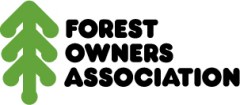PESTS AND DISEASES OF FORESTRY IN NEW ZEALAND
Forestry focus for national certificates
From Biosecurity Magazine - Issue 75, 1 May 2007.
The Forest Industries Training and Education Council (FITEC) has NZQA-accredited biosecurity qualifications, comprising three national certificates:
- Surveillance of the health of the forests is covered by the National Certificate in Forest Health Surveillance.
- Export inspection of forest products is covered by the National Certificate in Forest Produce Inspection.
- Border import inspection is covered by the National Certificate in Biosecurity (Border Quarantine)
National Certificate in Forest Health Surveillance
This certificate is awarded to people who have demonstrated competence in the surveillance of forests and trees to detect and monitor health disorders. The certificate recognises knowledge of the management of forests, and of botany, earth science and ecology; the skills and knowledge of the detection and recognition of pests and diseases of trees and forests, and knowledge of the overseas threats to the health of New Zealand's trees and forests.
National Certificate in Forest Produce Inspection
This certificate is awarded to people who have demonstrated competence in the inspection and certification or otherwise of forest produce for export, to ensure that the produce meets the phytosanitary requirements of the importing country. The certificate covers knowledge of the international conventions and agreements, and the phytosanitary requirements of individual importing countries.
National Certificate in Biosecurity (Border Quarantine)
This qualification has strands in international cargo clearance, international vessel clearance, international aircraft clearance, and international mail clearance.
The certificate is awarded to people who have demonstrated competence in the skills and knowledge of the inspection, evaluation and clearance or otherwise of organic materials entering New Zealand through international airports or seaports, or through the International Mail Centre. The practice of those skills and the knowledge involved is only achievable by people, employed as Quarantine Officers by the Ministry of Agriculture and Forestry, who are warranted to conduct such inspections.
Kate Blackstaffe, National Training Manager from MAF Quarantine Service (MAFQS) spoke to Biosecurity about the biosecurity qualifications.
Biosecurity Magazine: Who goes through training at MAF Quarantine Service?
Kate Blackstaffe: We mainly train Quarantine Officers, although the introduction-type training that we offer is for anyone who starts with MAFQS. This includes global biosecurity awareness, communication skills, OSH and aspects of legislation.
BM: What is the outcome for those who go through training?
KB: Competence in the job. There is a component of compliance with some aspects of the training provided. The nice thing about the National Certificate in Biosecurity is that it adds a qualification to being competent in the job.
BM: What do people get out of their training?
KB: Predominantly, new skills in being a frontline Quarantine Officer. In addition, they pick up general knowledge about MAF and MAF culture, and an awareness of the diversity of the work.
BM: Is all training specific to the jobs that they do, i.e., does the training match the specific tasks that allow them to carry out the job?
KB: There is a combination of practical training taught at the worksite, and generic, theory-based training taught in the classroom. The idea is to give the Quarantine Officer practical skill – most important when starting in the job – and also the background knowledge to understand why certain actions need to be taken to mitigate the biosecurity risk to New Zealand.
For more information about these qualifications:
www.fitec.org.nz
FITEC, phone (09) 356 7250

 Farm Forestry New Zealand
Farm Forestry New Zealand

